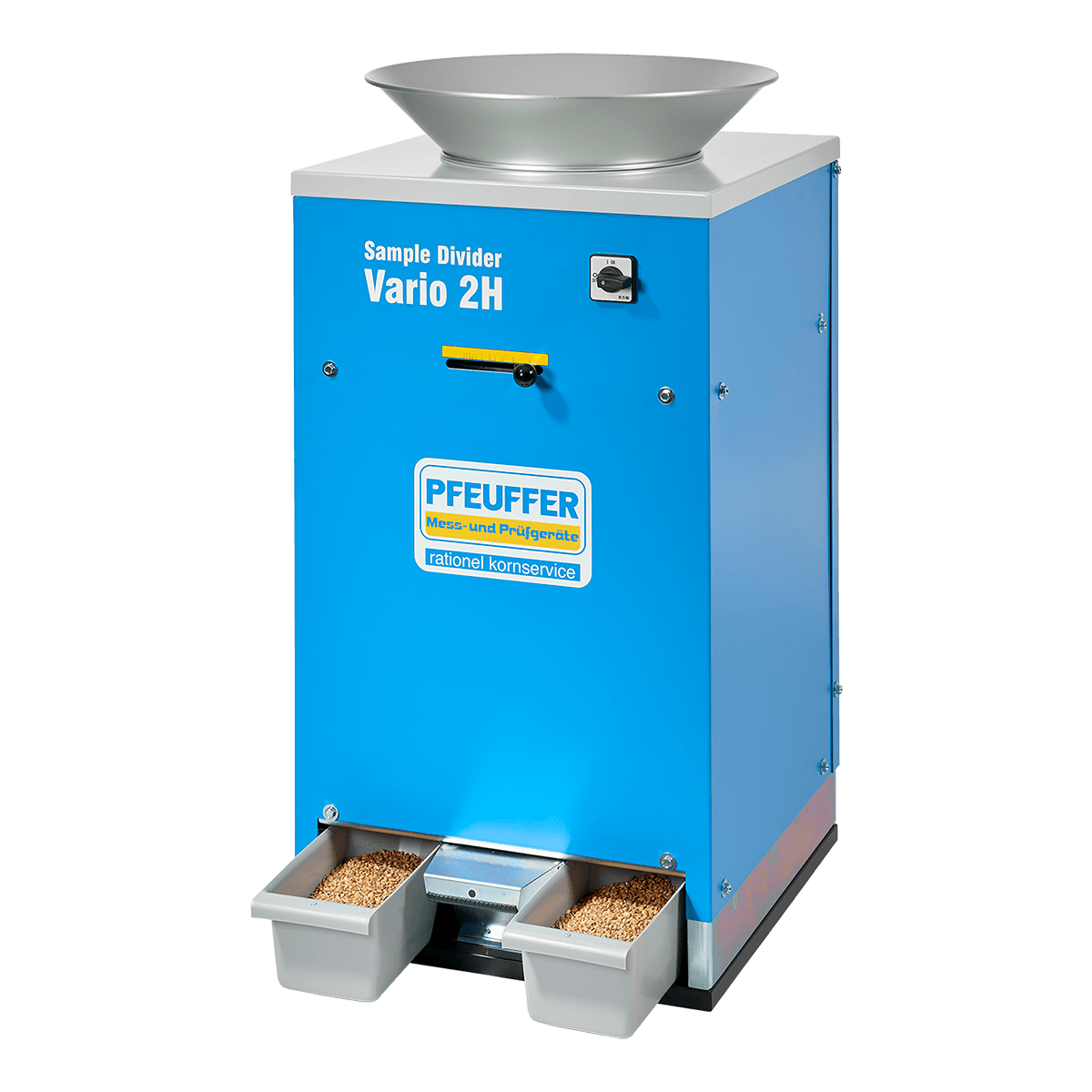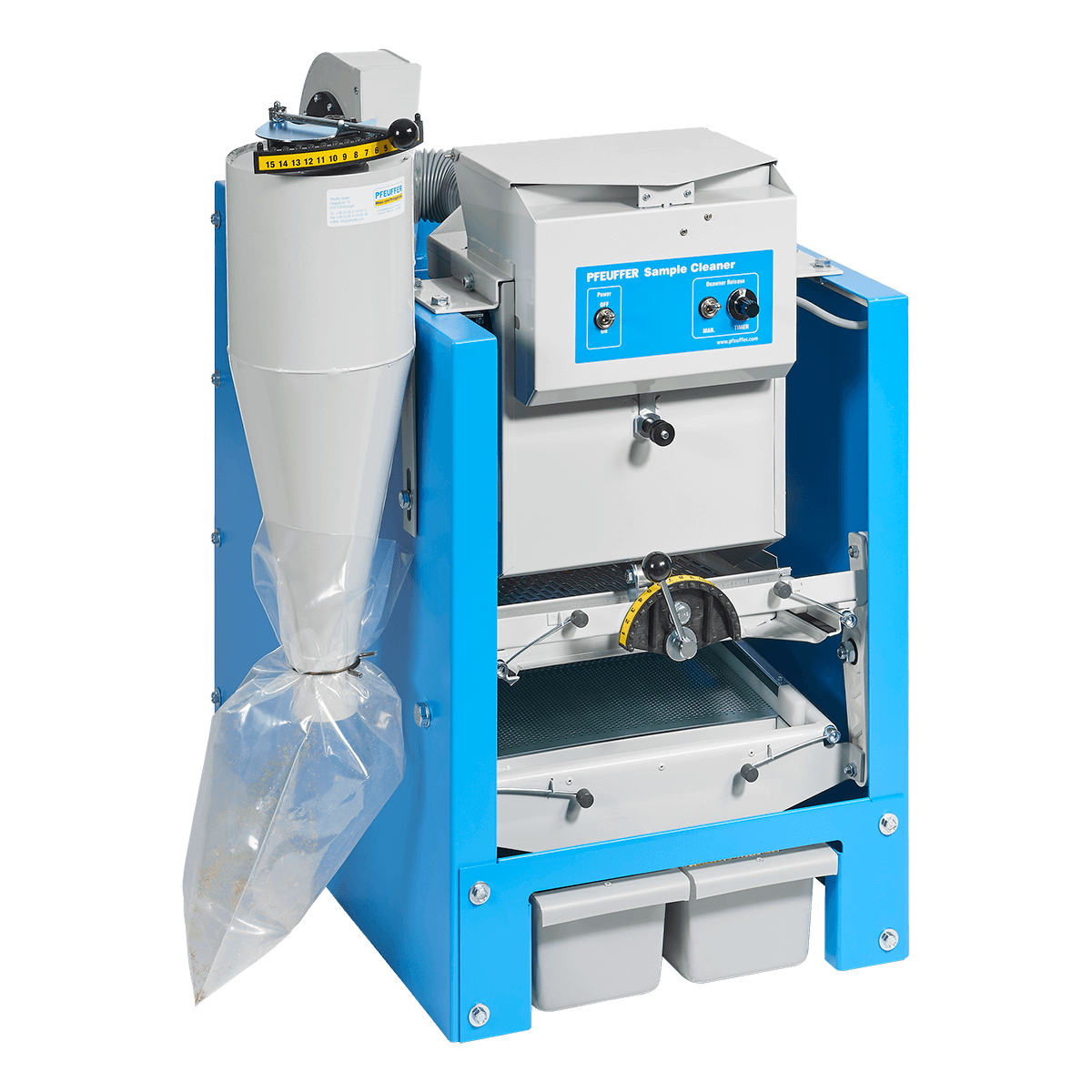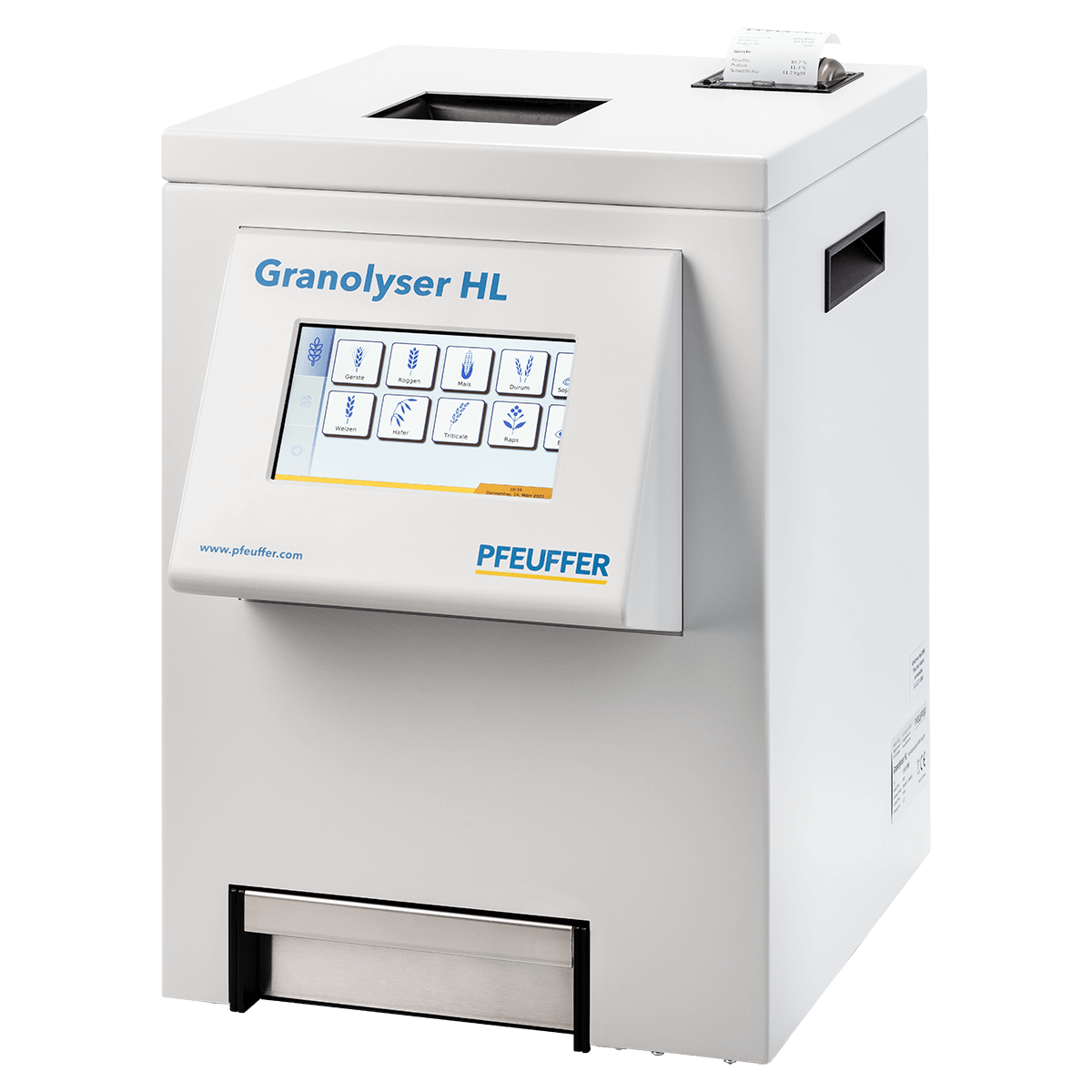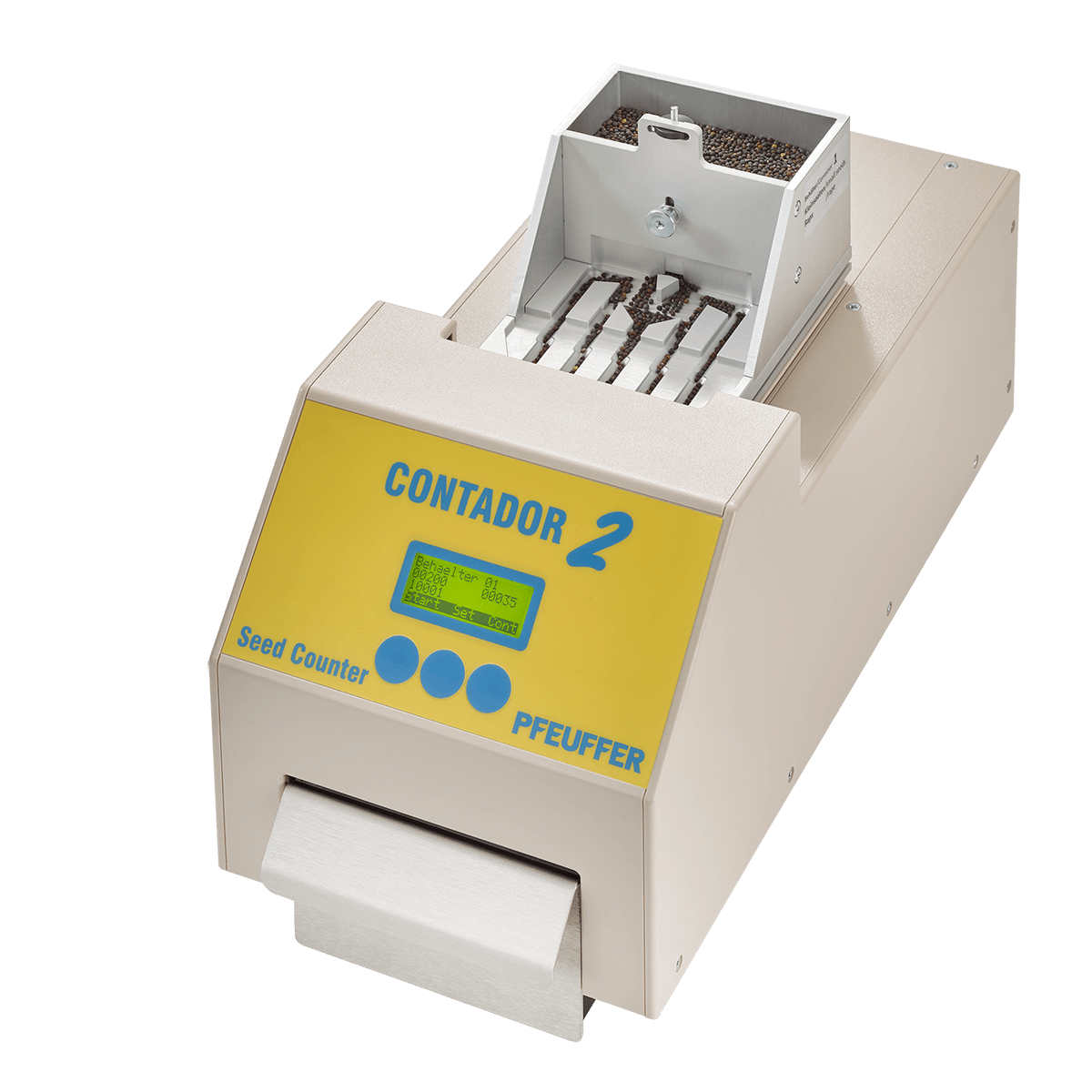Quality control of grain and seeds
Quality control products for the grain and seed processing industries.
Our Products
Representative sampling



Quality control of grain and seeds

Moisture and analysis
Moisture meters for different customer groups and an NIR analyzer


Our Industries
The product range includes the sampling of grain and seeds during seed production, the delivery of harvested grain, further processing and the measuring of different quality parameters during the entire process.
Agriculture
The farmers are the starting point. They plant the crops on the land. They optimize the yield and the quality by irrigating, fertilizing and controlling pests. Ultimately, they harvest the final quality.
Grain trade
Dealers collect the products from the farmers, clean and sort them and create uniform batches on the basis of quality classifications. They then offer these batches to neighboring industries such as the mills.
Cooperatives
Organizations such as the Raiffeisen cooperatives work in a similar way to the private grain trade. Their area of activity is usually focused on a region, but some of them are also global players in the grain industry.
Mills
They are the adjacent branch to the bakeries, and look for high-quality grain in order to fulfill the specifications of the bakers. Grinding means separating and mixing in order to have homogeneous grain and homogeneous flour.
Feed manufacturers
These collaborate with animal breeders and produce specified and declared feed mixtures in order to achieve improvements in the fattening of cows, pigs and poultry.
Seed cultivation
The goal is to improve seeds in such a way that the market requirements are fulfilled in a better way than with the existing types. Changed environmental conditions such as the weather and the climate increase the pressure to make improvements in the supply of food to the increasing global population. Improving and selecting different types and official recognition require our support.
Malthouses & breweries
The brewing industry is also an important customer for grain and cereals. Since the beer customer will only accept consistent quality, the breweries need constant and stable malts from the malthouses. These, in turn, have to optimize the existing grain quality by means of their process.